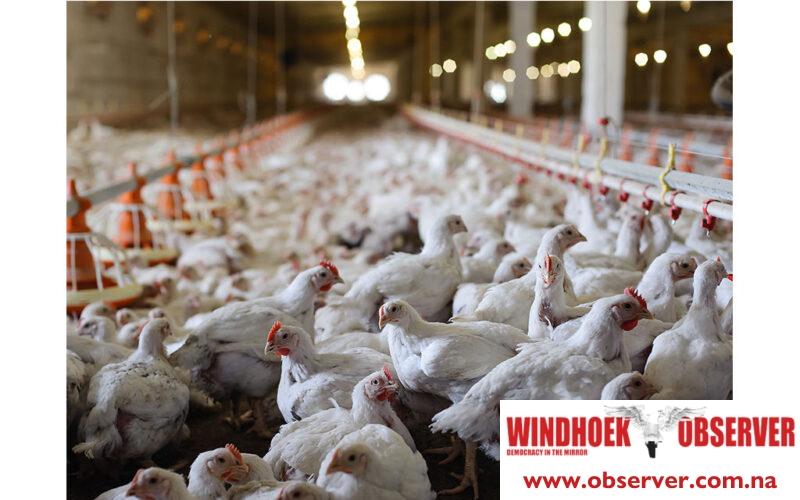Niël Terblanché
Namibia has resumed the importation of live poultry and birds from South Africa, following a temporary suspension imposed in September 2023.
The suspension was initially enacted due to an outbreak of highly pathogenic avian influenza in South Africa, prompting Namibia’s Ministry of Agriculture, Water and Land Reform (MAWLR) to halt all imports to protect the local poultry industry.
The acting chief veterinary officer at the Directorate of Veterinary Services, Johannes Shoopala, stated in a notice on Friday that the ban has been lifted.
“The resumption of imports, however, comes with stringent conditions to ensure the continued safety and health of Namibia’s poultry sector,” he said.
According to Shoopala, only poultry and birds originating from compartments approved by South Africa’s Department of Agriculture, Land Reform and Rural Development (DALRRD) and registered under Namibia’s Veterinary Procedural Notice (VPN) 44.2012-01 will be allowed entry.
“Additionally, the compartments must be listed on the monthly approval list by the Director of Animal Health for export to Namibia, and the parent flocks of the imported poultry must not have been vaccinated against highly pathogenic avian influenza,” he said.
He said the resumption of imports is vital for Namibia, where citizens consume approximately 2 500 metric tons of chicken each month, heavily relying on imports from South Africa to meet domestic demand.
“The resumption of these imports is expected to stabilise the local market and address potential shortages,” he added.
At the same time, the directorate has suspended the import and transit movement of live poultry, birds, and poultry products from Brazil’s Rio Grande do Sul state following an outbreak of the avian Newcastle disease in the region.
Shoopala said in a second notice on Friday that the decision is based on the detection of the disease on 9 July.
He indicated that the suspension took effect on 18 June and that it aligns with the World Organisation for Animal Health’s (WOAH) recommended incubation period of 21 days.
According to the directive, the importer will either send back to Brazil or destroy any consignments from Rio Grande do Sul packed in their final packaging on or after the date of suspension.
Shoopala announced the cancellation of all previously issued import and transit permits for poultry from Rio Grande do Sul.
“Despite these restrictions, the import of cooked poultry meat products for commercial purposes will still be permitted under strict veterinary import permits,” he said in the notice.
He added that this dual approach by the directorate is a demonstration of the government’s aim to maintain biosecurity while ensuring the nation’s poultry supply remains uninterrupted.
Shoopala urged members of the public and importers to stay informed and comply with these regulations to prevent the introduction and spread of diseases within Namibia.




